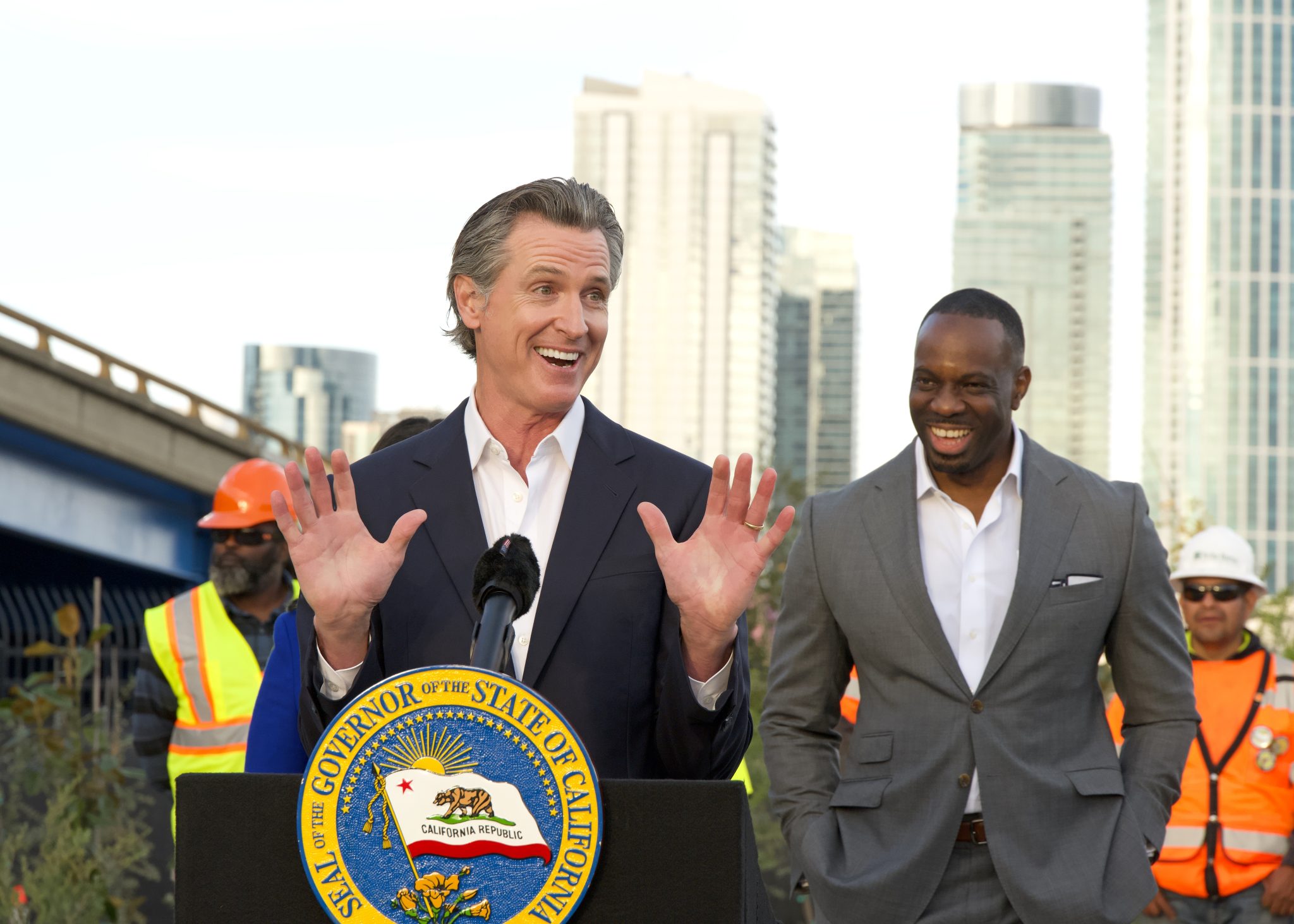Can Governors Be ARRESTED? Gill Thinks So

Texas Representative Brandon Gill ignites fierce debate by calling for the arrest of governors who obstruct federal immigration enforcement, raising critical questions about states’ rights versus federal authority.
At a Glance
- Rep. Brandon Gill declared during a House Oversight Committee hearing that governors who obstruct federal immigration enforcement should face arrest
- California Governor Gavin Newsom and Illinois Governor JB Pritzker have been specifically targeted for their sanctuary policies
- Pritzker responded that he would rather be arrested than have Illinois residents improperly detained
- Legal battles continue as the Department of Justice has filed lawsuits against Illinois over its non-cooperation laws
- A federal court previously upheld California’s sanctuary law against a Trump administration challenge
Congressman Calls for Arrest of Sanctuary State Governors
Texas Representative Brandon Gill has taken a firm stance against governors who implement sanctuary state policies, suggesting they should face arrest for obstructing federal immigration enforcement. During a contentious House Oversight Committee hearing on sanctuary states, Gill directly challenged Democratic governors who have limited local law enforcement cooperation with Immigration and Customs Enforcement (ICE). The freshman congressman specifically targeted California Governor Gavin Newsom and Illinois Governor JB Pritzker, accusing them of deliberately hampering federal authorities’ ability to enforce immigration laws.
“I think if they are openly flouting federal law and obstructing federal law enforcement, then that’s something we should consider,” stated Gill during the hearing. His comments align with former President Trump’s previous calls for legal action against Governor Newsom. The confrontation comes amid escalating tensions between Republican immigration hardliners and Democratic state leaders who maintain that their sanctuary policies protect immigrant communities while still complying with federal law.
Democratic Governors Push Back Against Threats
Democratic governors have strongly rejected allegations that their states are violating federal law. A spokesperson for Governor Newsom firmly stated, “Our state laws do not conflict with any federal law. Period. Full stop.” This position is bolstered by a previous federal court decision that upheld California’s sanctuary law against a Trump administration challenge. The law prevents local authorities from being compelled to participate in federal immigration enforcement but does not explicitly block federal agencies from performing their duties.
“This hearing is a witch hunt against the governors that run successful cities,” declared Illinois U.S. Rep. Delia Ramirez, D-Chicago.
When faced with threats of arrest, the Democratic governors remained defiant. Governor Pritzker stated he would rather face arrest himself than allow Illinois residents to be improperly detained, while New York Governor Kathy Hochul responded to similar threats with a terse “go for it.” Governor Pritzker further criticized the approach, suggesting it aims to divide rather than protect the country, and called for comprehensive immigration reform instead of confrontation.
Financial and Legal Disputes Intensify
The hearing revealed deep divisions not only over immigration enforcement but also regarding the financial impact of sanctuary policies. Illinois Republicans claim the cost to subsidize non-citizens in their state amounts to several billion dollars, with over $1.6 billion reportedly spent on taxpayer-funded health care for undocumented immigrants in just three years. These financial concerns have become central to Republican arguments against sanctuary policies, which they contend burden taxpayers unnecessarily.
Illinois currently faces two lawsuits from the U.S. Department of Justice, including one that challenges a state law prohibiting local and state law enforcement from cooperating with federal immigration officials on civil detention orders. Similar legal challenges are unfolding across the country as the Trump administration has indicated plans to deploy National Guard troops to address immigration issues in locations like Los Angeles, despite opposition from Governor Newsom.
Political Undertones and Future Implications
The House Oversight Committee hearing carried clear political overtones, with accusations from Democrats that it served as a campaign platform rather than a substantive policy discussion. Representatives Elise Stefanik and Mike Lawler, both reportedly considering gubernatorial runs in New York, used the opportunity to criticize Governor Hochul directly. Meanwhile, Governors Walz of Minnesota and Pritzker of Illinois, both potential 2028 Democratic presidential candidates, have already taken steps to limit government-funded health care for undocumented immigrants in their states.
The exchange between Representative Gill and the Democratic governors highlights the growing divide in how states and the federal government approach immigration enforcement. As legal challenges continue and political rhetoric intensifies, the constitutional questions regarding the balance of power between state and federal authorities remain unresolved, setting the stage for what could become a defining legal battle over immigration enforcement authority in America.
